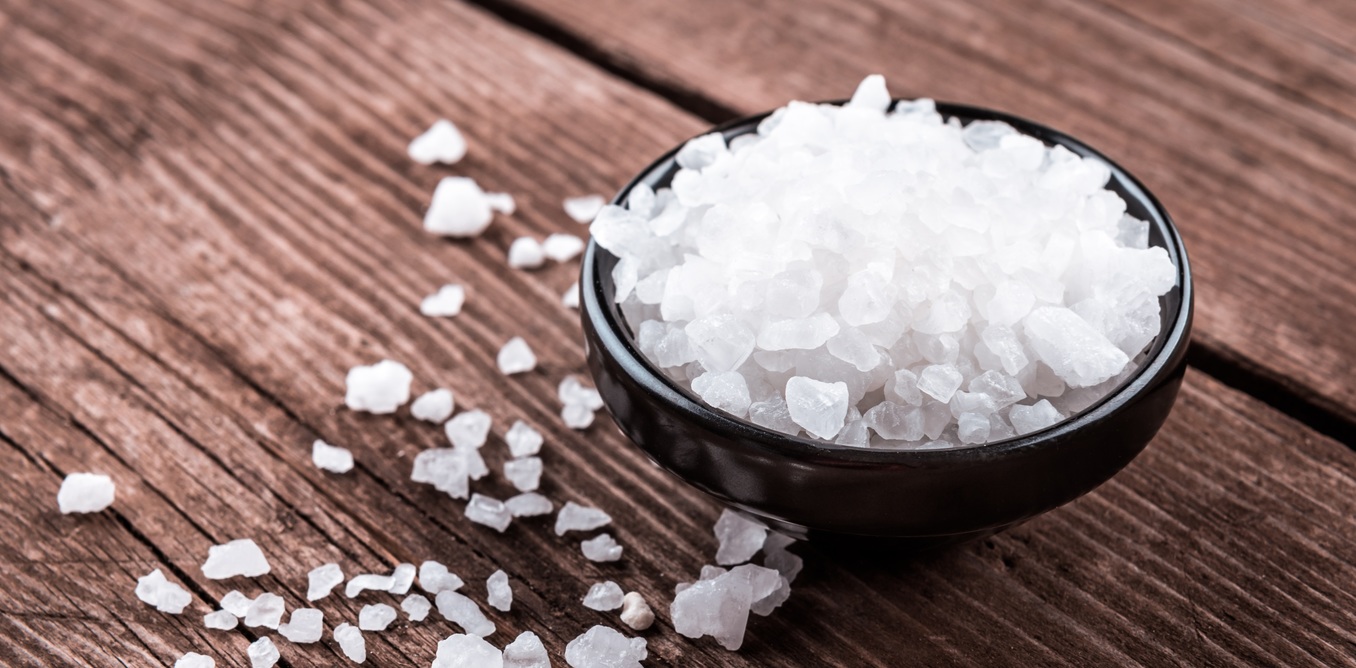Salt is an essential nutrient that our body depends on to live.
Salt, is needed to maintain the optimal amount of blood in our bodies; it’s even needed by the heart to pump blood throughout our bodies. It is essential for digestion, cell-to cell communication, bone formation and strength, and prevention of dehydration. Sodium is also critical for reproduction, the proper functioning of cells and muscles, and the optimal transmission of nerve impulses to and from organs such as the heart and brain.
Athletes are likely to follow recommendations to eat less salt. Unfortunately, these individuals may be at particular risk of salt depletion, not only from decreased consumption and increased losses of salt from sweat but also from overhydration with plain water. All this adds up to low blood sodium levels.
Sweating helps the body maintain normal body temperature to prevent heatstroke- it’s our body’s way of cooling off. Having enough salt in the body to be able to adequately sweat is of vital importance in thermoregulation. Depending on exercise intensity and ambient temperature, you could easily lose more than an entire day’s worth of salt intake in just one hour of exercise.
In one study by Mao and colleagues, one hour of soccer practice in temperature between 89. 6 F and 98.6 F with 50% humidity caused players to lose 1,896 milligrams of sodium from sweating. Importantly, soccer players also lost on average 52 micrograms of iodine in their sweat; this amount of iodine loss is over one third the recommended daily intake. Bottom line: when you exercise, your body needs more salt and iodine than when you don’t, and some people may need more than others (McCarty, 2004).
Depletion of body sodium can lead to symptoms comparable to overtraining syndrome, even before we can detect lower levels of sodium in the blood. Salt depletion can cause the body to work harder than normal, pushing you into training overload prematurely. Your physical strength starts to falter and your sympathetic nervous system gets so exhausted that your blood pressure drops and you ‘re at risk of fainting. Part of the reason sodium depletion may lead to impaired muscular strength and energy metabolism is that it raises the acidity of our cells (Blank et., al 2012). The consequences of excessive losses of salt in sweat during exercise can include dehydration, tremors, muscular weakness, and even cardiac arrythmias.
In one report, a reduced sodium intake during high intensity exercise increased cramps and muscle fatigue; reduced endurance performance; and caused general fatigue, joint pain, sleeping disorders, circulatory impairments, and distinct thirst. But these symptoms were vastly improved when people increased their sodium intake, even of they worked harder, their symptoms of overtraining were eliminated.
The thirst that we experience during bouts of exercise, may actually be for the replacement of salt, not water. If we increase salt intake, we may find are less thirsty. Basically, your sweat is 7 to 8 times as concentrated in sodium as tap water, so you should be hydrating with something that contains much more salt than just plain tap water.
Also, athletes who struggle with arthritis could experience relief with extra salt. When you don’t have enough sodium in your cartilage cells, acid can build up, which is not good for your cartilage or your joints. Low salt diets may worsen cartilage health in both those with and without autoimmune diseases, decreasing their ability to protect joints and increasing joint pain, especially during exercise.
Recommendations for exercise:
Consume more salt before and during exercise. Adding 2,300 milligrams of sodium (1 teaspoon of salt) per liter of water has been found to reduce total fluid loss during exercise.
A good dose of salt (if working out in moderate climates) is ½ teaspoon of table salt. This provides about 1,150 milligrams of sodium and should cover most of your salt losses during the first hour of your workout.
Take this prophylactic dose of salt about 30 minutes prior to your workout, with an additional ½ teaspoon of salt for every hour thereafter, and you may see significant gains in your performance.
Diluting salt in a mixture of lemon, lime and orange juice might be quite pleasant for some! For me …NOT, but give it a try!
From the book “The Salt Fix” by Dr. James DiNicolantonio
